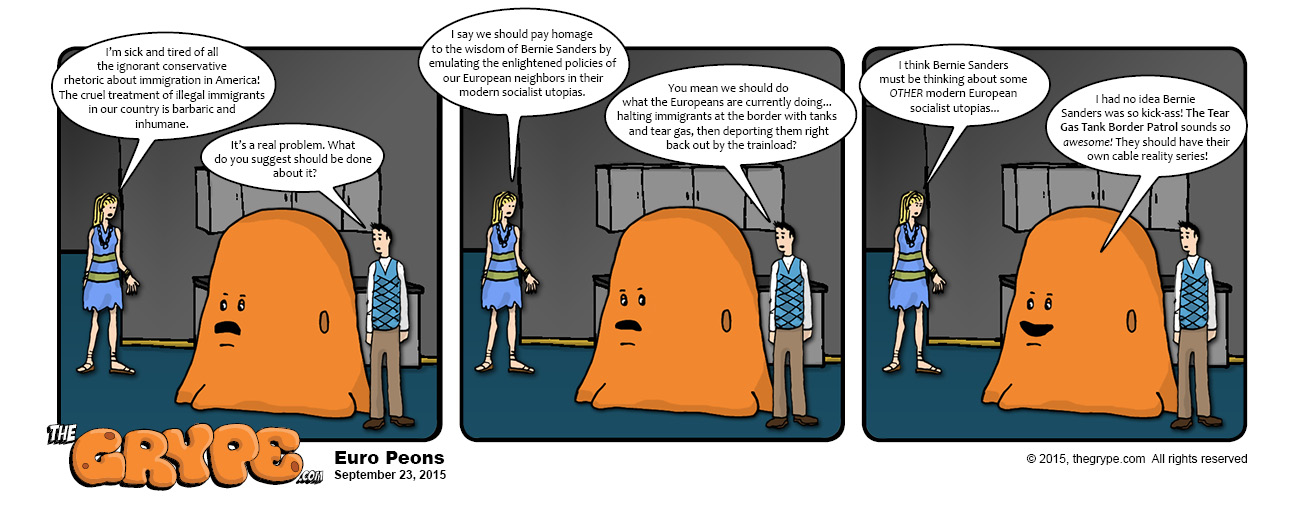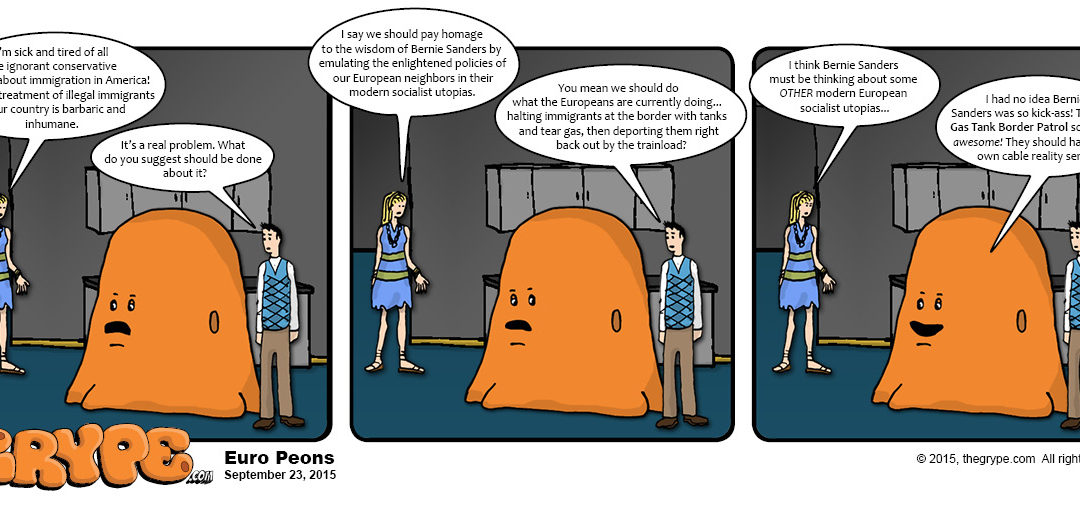 So this week— despite the very real possibility of another incredibly-expensive, completely needless partisan-publicity-stunt-driven Government “shut down” in our immediate future— instead everyone seems up in arms about the pros and cons of raising the Minimum Wage.
So this week— despite the very real possibility of another incredibly-expensive, completely needless partisan-publicity-stunt-driven Government “shut down” in our immediate future— instead everyone seems up in arms about the pros and cons of raising the Minimum Wage.
Okay, we’ll take on that one instead. The Government Shut Down is just a possibility; but the Minimum Wage is an actual thing. It already exists. No one argues that. It’s NEVER going to be repealed. So… THAT is the very reason it makes sense to raise it.
It will, eventually, have to be raised. It SHOULD have been raised more often than it was, to keep pace with the inflation rates and cost of living during the 1970’s, ’80’s, and 90’s, except it wasn’t. Business owners fought it every time it came up on the agenda, in an effort to keep down the bottom line costs despite the massive increase in individual American employee production rates that has occurred over the past 40 years. The reason? To keep business profit ratios high at the cost of the work force. It worked great. There are a lot of businesses out there right now that would have no choice but to shrink (by as much as 50%) if they were forced to pay all their employees a fair living wage. THAT’S what the creation of the minimum wage was specifically designed to prevent— to keep businesses from growing themselves by taking unfair advantage of American workers, which was what led to the Robber Barons and horrible work conditions of the late 1800’s.
If it had tracked alongside the GPI and cost of living, right now the minimum wage in the USA would be somewhere in the neighborhood of $21.50/hr. Everyone above minimum would have been lifted along that same scale, to keep things correctly stratified and to match inflation. That’s what would need to happen to take us back to the same wage-ratio that allowed the creation of the Great American Middle Class in the 30 years following World War II.
But then came the great corporate screwing of the American work force that began in the 1970’s, when all the money in American businesses began to be funneled toward the top of the pyramid by upper management, rather than being kept equitable throughout the company structure. Corporations AREN’T companies: they are financial instrument that drain profits out of companies and into the bank accounts of outside shareholders. That process was allowed to go wild, unregulated and unchecked, with the assistance of the top 10% of company upper management, until today.
The end result? Up to 90% of company payroll now goes upstairs into the paychecks of the big suits, with the most going straight into the pocket of the CEO. Upper management colludes with the system because it benefits them the most, and the lower class workers and middle management get paid less and less to do more and more.
The system is now at the breaking point. The lower level workers of American companies are ALSO the customers of OTHER American companies, and as the middle class gets squeezed harder and harder there’s less money flowing back into the consumer marketplace (the rich can only buy so much disposable shit— 1,000 middle class consumers can buy 1000 lawn mowers and 1000 houses, whereas even the heaviest-spending millionaire will only buy a few of those things at a time). The money doesn’t “trickle down” that way. That was always a lie.
The standard of living in any modern country is determined by the size and financial health of its middle class. So if you depress wages to bolster company profits by underpaying your workforce, you keep them from entering the Middle Class. Then if (God Forbid!) you cut the taxes of the rich to the bare minimum and put the bulk of the tax burden on your shrinking Middle Class, to squeeze them into paying for all those corporate tax breaks the rich refuse to pay for, you damage the Middle Class even more and upward mobility (and consumer prosperity) STOPS.
You can go outside the country for slave labor to produce your product in shitty but cheap foreign factories (which has been the new strategy since the NAFTA ’90’s) and you can beg for new foreign trade to open up formerly-barred foreign markets for your products when your own citizens can no longer afford them (TPP), but eventually the whole system breaks down if your own (American) citizens can no longer afford to buy enough consumable merchandise to keep your companies afloat.
As the spending power of their consumer base dwindles, American companies will have to consolidate or go out of business, or offer more and more cheaper and cheaper merchandise to keep the underpaid Americans buying. That was the Super Stores, the big mergers, and the triumph of Walmart’s all-foreign super-cheap junk-merchandise business strategy, if you bothered to pay attention.
Raise the minimum wage (at the cost of temporarily shrinking businesses built on paying their employees impossibly low salaries), or force the upper executives and corporate shareholders to reduce their own incomes and profits (by, say, 30%) so some of that largesse can be re-injected into the faltering middle class.
My guess is that no one at the upper executive level is going to want to give anything back. One famous CEO recently did exactly that and has gotten blasted by other companies and his business is in peril because he had the balls to do it. It may be the right and wise thing to do, but institutionalized greed on that scale doesn’t ever give ANYTHING back.
So, Plan B: raise the minimum wage to 15.00/hr— which is still 7.00/hr LESS than it should be, adjusted for inflation.
Because it WILL rise. The longer you hold it back and let it stagnate, the worse a shock it will be when you finally have to raise it anyway.
Or you can shrug, roll your eyes, and keep shrinking the middle class. Then watch as the corporations ship everything overseas and leave the American production economy in the same shape as Detroit.
The Unions built Detroit by forcing the automakers to pay a fair wage, and the industry boomed. The automakers killed the Unions to compete with cheap Japanese imports, quality fell, the industry started to die off, and now those factories sit silent. Instead of allowing their business to shrink while they reconsolidated it to adjust to changing market conditions, they insisted upon maintaining continual growth at the expense of workers and quality, a strategy that ultimately failed completely. And permanently devastated the economy of an entire state in the process.
The more money that is shifted from corporate profit channels and re-invested in the work force, the more money will exist in the consumer sector, the more products will be bought, and the better business (and the economy) will be for everybody. It’s not the rich who spend all their money— they hoard it. It’s always the middle and lower classes who spend all their money, because they are the great consumer machine that fuels the economy.
Pay them less, and they have less to pay. And commerce suffers, and along with it, our national economy.
This is all Economics 101.
“No business which depends for existence on paying less than living wages to its workers has any right to continue in this country.”
—FDR (1933, Statement on National Industrial Recovery Act)

